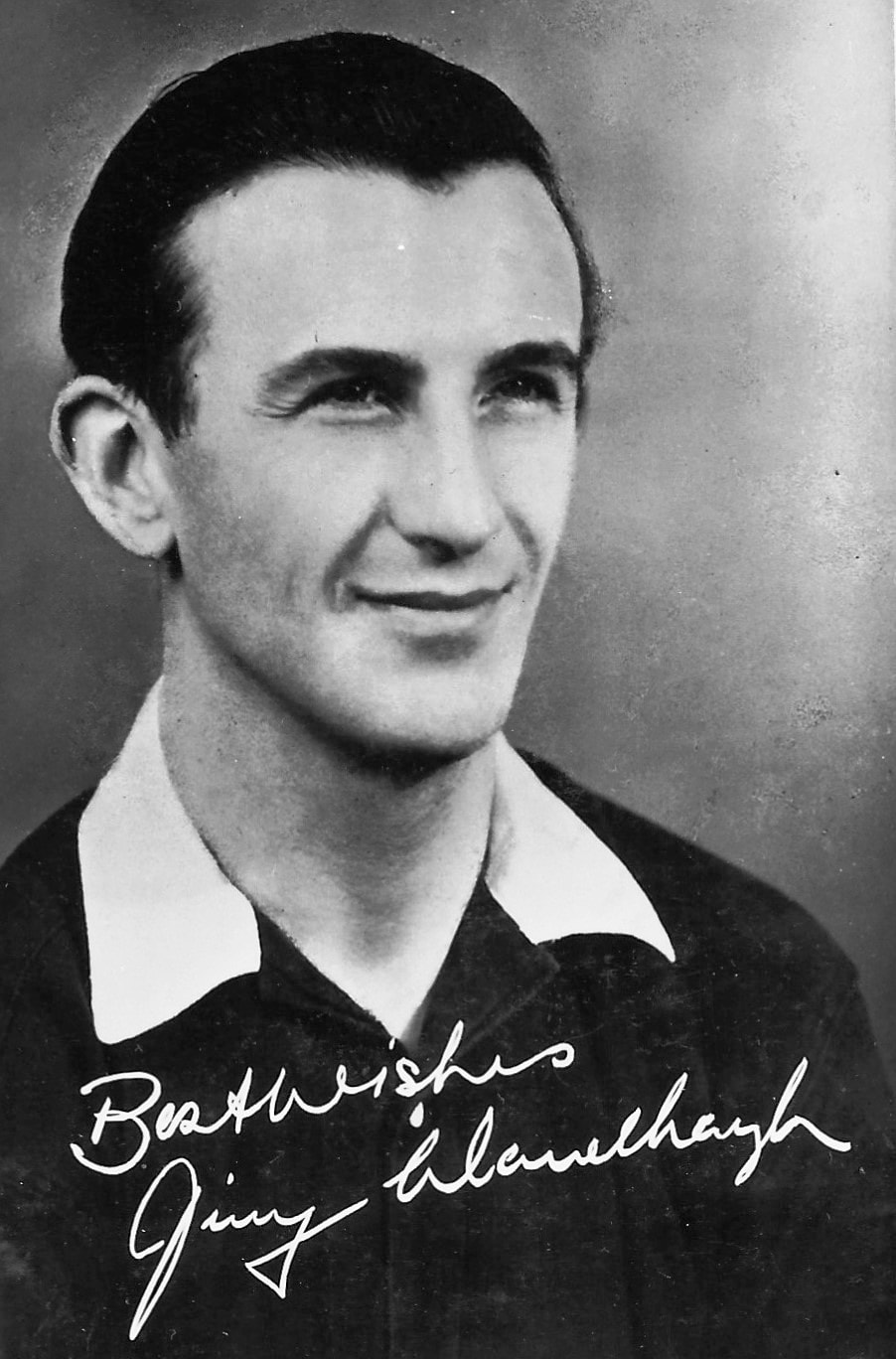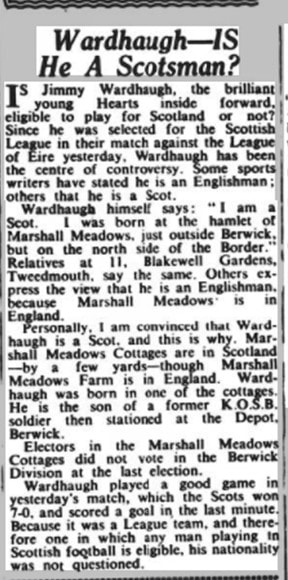However, there was one notable exception when the Scottish Football Association was quite happy to break the rule. Jimmy Wardhaugh of Hearts was capped twice for Scotland and nine times for the Scottish League despite a birthplace on the 'wrong' side of the border in Northumberland.
Wardhaugh was a goalscorer supreme in the outstanding Hearts team of the 1950s, part of the 'Terrible Trio' alongside Alfie Conn and Willie Bauld. Known as Twinkletoes for his quick feet, he scored no less than 376 goals for the club, a record that stood until it was beaten decades later by John Robertson.
Not surprisingly, Wardhaugh came into contention for international honours and his first call-up was for the Scottish League in January 1951. This prompted a lively debate in the press: was he really Scottish?
Then, to general surprise, George Graham, the Secretary of the SFA, weighed into the debate with a curious piece of logic. He told the press: 'The SFA does not work to a foot-rule or feel itself bound by a matter of a few yards which are debatably English or Scottish ground. We have always regarded the Tweed as the border. Berwick Rangers are a Scottish club - they are playing at Brechin in the Scottish Cup next Saturday. And Wardhaugh is a Scotsman who I can say quite categorically will be brought into the selectors' reckoning when future teams are being chosen.'
George Graham, normally a pedantic stickler for rules, gave no explanation for this policy of blurred national boundaries. He also managed to contradict himself in his statement, as Berwick Rangers' home at Shielfield Park is actually south of the River Tweed, in Tweedmouth.
However, there were no complaints from the FA about his eligibility, and Wardhaugh scored on his debut for the Scottish League, against the League of Ireland. Despite his goal-scoring prowess he had to wait a while to be selected for the full national team, and finally made his Scotland debut against Hungary at a packed Hampden on 8 December 1954. He was capped just once more, against Northern Ireland on 7 November 1956.
Curiously, however, Wardhaugh was not born in Marshall Meadows, even though he claimed he was. Accounts of his life have always stated that was his birthplace, but they are all wrong. I recently ordered up his birth certificate and it clearly says James Alexander Douglas Wardhaugh was born on 21 March 1929 in Berwick itself, at 65 High Street (now named Marygate). This was the home of his mother's family, the Egans, who lived in a flat above a chemist shop; the building is still there although the business is now a charity shop.
Winniefred Egan had married Alexander Wardhaugh at Berwick Barracks in January 1928. Alexander, born in Tweedmouth, was a career soldier who had been in uniform since 1912 and was serving with the Royal Scots Greys, based at Redford Barracks in Edinburgh, by the time Jimmy was born. Winnie was born in northern India while her own father was serving there, and was brought up in Berwick.
When Alexander retired from the Army in 1933 the family remained in Edinburgh, where Jimmy was brought up and spent the rest of his life. There is nothing to indicate that the Wardhaughs ever lived in Marshall Meadows, although it is possible the mother and baby stayed there for a short time.
In Jimmy Wardhaugh's case, England's loss was Scotland's gain. There is nothing unusual today about an English-born player with Scottish connections playing for Scotland, but in the 1950s he was a unique exception, thanks to the SFA's loose grip of geography.
Although he only won two caps, Jimmy remains a legendary figure at Tynecastle. His goals and teamwork helped Hearts to win the Scottish Cup in 1956, the Scottish League in 1958, and two League Cups. After retiring in 1961 he remained in football as a journalist until his sudden death on 2 January 1978, aged just 48.
* With thanks for David Speed, historian at Heart of Midlothian FC, for his input. I also recommend reading Tom Maxwell's book The Lone Rangers on the issue of nationality for a football fan in Berwick.



 RSS Feed
RSS Feed